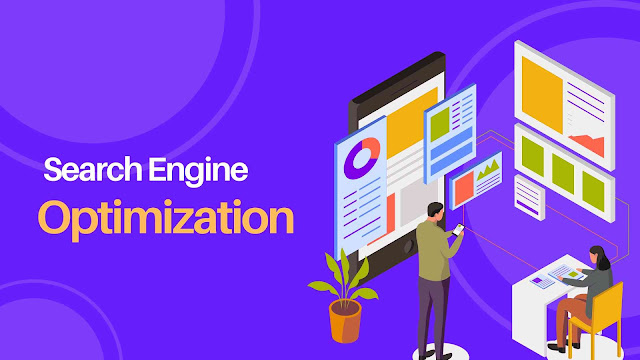Search Engine Optimization (SEO) is a crucial marketing technique that can help drive traffic, increase brand visibility, and improve website ranking. In this comprehensive guide, we’ll cover everything you need to know about SEO, from the fundamentals to advanced strategies.
What is SEO and why is it important?
Search Engine Optimization, or SEO, is the process of optimizing a website to improve its ranking in search engine results pages (SERPs). This is done by improving the website's content, structure, and relevance to the target audience. SEO is important for businesses because it helps drive organic traffic to their website, increase brand visibility, and improve website ranking.
How search engines work
To understand SEO, it’s important to understand how search engines work. Search engines use a complex algorithm to determine the relevance and authority of a website for a given keyword or phrase. The algorithm takes into account factors such as website content, backlinks, user experience, and more to determine the ranking of a website in the SERPs.
Keyword research and analysis
Keyword research is an essential aspect of SEO. This involves identifying the keywords and phrases that your target audience is searching for and optimizing your website content to include those keywords. Keyword research tools like Google Keyword Planner and SEMrush can help identify relevant keywords and analyze competition and search volume.
On-page optimization
On-page optimization involves optimizing website content and structure to improve its relevance and authority. This includes optimizing page titles, meta descriptions, headers, and website structure. On-page optimization also involves improving website speed and mobile-friendliness, which are important factors for both user experience and SEO.
Off-page optimization
Off-page optimization refers to building high-quality backlinks to your website from other reputable websites. Backlinks are an important factor in SEO because they signal to search engines that your website is authoritative and relevant. Effective off-page optimization strategies include creating high-quality content, guest posting, and participating in online communities and forums.
Local SEO optimization
Local SEO is important for businesses that operate in a specific geographic area. Local SEO optimization involves creating and optimizing Google My Business listings, obtaining local citations and directory listings, and improving website content and structure to include local keywords and phrases.
Technical SEO optimization
Technical SEO involves optimizing website structure and architecture to improve its relevance and authority. This includes optimizing URL structure, canonicalization, sitemaps, and robots.txt. Technical SEO is important for improving website crawl ability and indexing, which can improve website ranking in the SERPs.
SEO for mobile devices
Mobile-friendliness is an important factor in SEO. With more and more users accessing the internet on mobile devices, it’s essential that websites are optimized for mobile. This includes creating responsive websites, mobile-specific content, and optimizing for voice search.
Voice search optimization
Voice search is a rising trend in SEO. To optimize for voice search, it’s important to optimize website content for conversational keywords and create content in a natural language format. Creating FAQ pages and optimizing for long-tail keywords can also improve website ranking in voice search results.
E-commerce SEO optimization
E-commerce SEO involves optimizing online stores for search engines. This includes optimizing product pages, creating unique descriptions, and improving website speed to enhance user experience. Effective e-commerce SEO strategies include improving product categories and descriptions, optimizing product images, and using structured data markup.
Content marketing and SEO
Content marketing and SEO go hand in hand. Creating high-quality, informative, and engaging content can improve your website’s ranking and attract potential customers. It’s important to create content that is relevant to your audience and incorporates target keywords. Content marketing can also help build backlinks and improve website authority.
Measuring SEO success
Measuring SEO success is important to understand the effectiveness of your SEO strategies. This can be done through various metrics, including website traffic, organic search ranking, conversion rate, bounce rate, and backlink profile. Tools like Google Analytics and SEMrush can help track and analyze these metrics.
Common SEO mistakes to avoid
There are some common SEO mistakes that can hinder your website’s ranking and visibility. These include keyword stuffing, low-quality backlinks, duplicate content, slow website speed, and ignoring mobile optimization. Avoiding these mistakes can help improve your website’s SEO and attract more organic traffic.
Keeping up with SEO trends and updates
SEO is constantly evolving, and it’s important to keep up with the latest trends and updates to stay ahead of the competition. Following industry blogs and attending SEO conferences can help keep you up to date with the latest SEO techniques and strategies.
Working with an SEO agency
Working with an SEO agency can help businesses develop and implement effective SEO strategies. An experienced SEO agency can help identify relevant keywords, optimize website content and structure, and build high-quality backlinks to improve website ranking and visibility.
Conclusion
Search Engine Optimization is an essential aspect of digital marketing that can help businesses attract more organic traffic, increase brand visibility, and improve website ranking. By understanding the fundamentals of SEO and implementing effective strategies, businesses can achieve long-term success and growth in the digital landscape.




Social Plugin